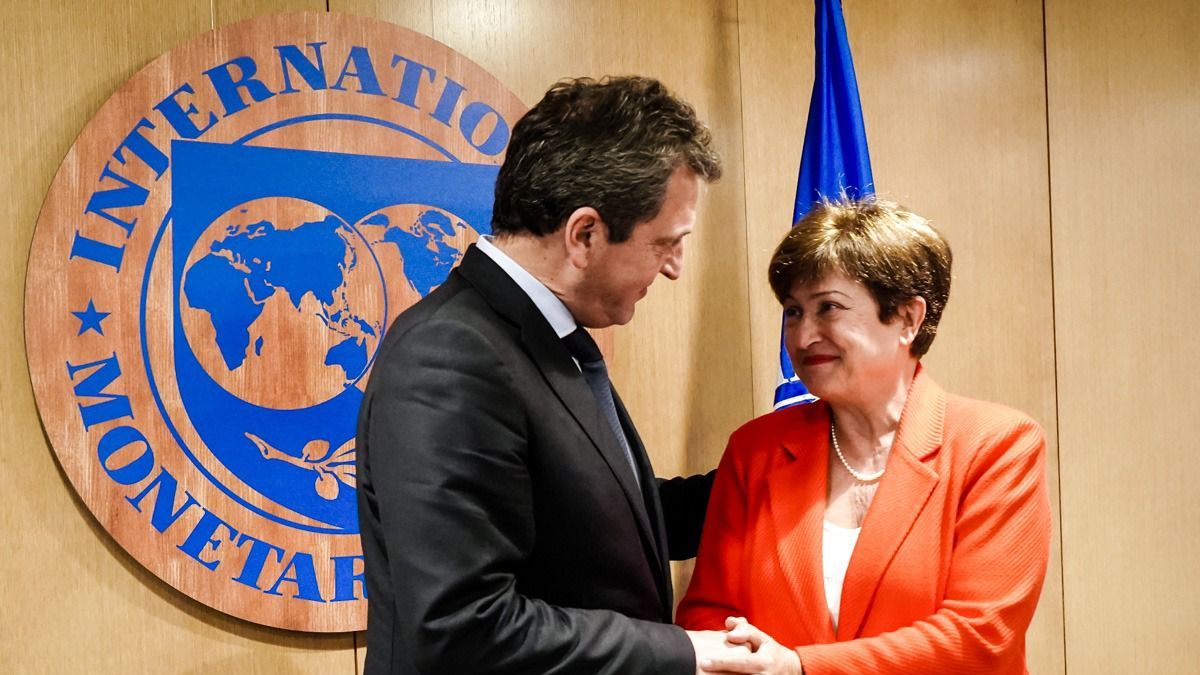Until this Saturday, the program of reserves goals for the year was closing with assumptions of falling or increasing exports.
In that framework, They hope to announce it on MondayA source with knowledge of the negotiations told Télam.
The Minister of Economy, Sergio Massapointed out days ago that an agreement had been reached with the IMF to make some of the goals established in the program more flexible and “realistic”, as a result of the drought in the country and the costs of the war in Ukraineand guarantee the disbursements of more than US$19,000 million to meet the maturities of the debt with the agency scheduled for this year.
“The consensus with the IMF is that it is better to adapt the work schedule for the year from the beginning to provide predictability and not have to apply for waivers (apologies for forgiveness) during the year”, said Massa last Saturday after the meeting with the managing director of the IMF, Kristalina Georgievain India, where he participated in a G20 meeting.
The head of the Palacio de Hacienda stressed that the objective between both parties “is to be realistic and predictable so that the program is really a computer and not a role in the air that is not fulfilled”.
Before, the head of the Fund had advanced the constructive tone of the negotiations for the new scheme: “Very good discussion with Sergio Massa in the framework of the G20 of India regarding the new challenges facing emerging markets and Argentina. Progress is made is doing in the fourth revision of the Argentina program and we hope to communicate its conclusion soon”, Georgieva communicated in a message on her Twitter account, also from India.
He also recalled that the objectives of the program with the Fund are “fiscal order, the accumulation of reserves, and orderly monetary programming.”
In his meeting with Georgieva on the sidelines of the G20 summit, the official presented a report claiming that The war between Russia and Ukraine caused a negative effect of US$4.940 million on Argentina’s trade balancegiven the rise in international fuel prices and the sharp increase in the cost of freight for export, mainly.
“War and drought play a role in our economy and it is better to face it by setting achievable objectives so as not to be correcting each quarter,” added the minister this Saturday.
Until now, the country had planned in the agreement a reduction in the primary fiscal deficit from 2.5% of the Gross Domestic Product (GDP) in 2022 to 1.9% for this year, and a decrease in financial assistance from the Central Bank (BCRA) to the Treasury from 1% to 0 .6%
Meanwhile, after having exceeded a reserve accumulation goal of US$5,000 million for the past yearfor this year another US$4.8 billion should be added since the biannual objective is US$9.800 million.
So far this year the Argentina has already sent the IMF close to US$3.2 billionwhich are part of total maturities for US$19,850 million that Argentina must deal with the body during the current yearwhich will be paid with the disbursements of the current program.
The period under analysis is the fourth quarter of 2022, the year that Argentina closed with a primary deficit (not including debt services) equivalent to 2.4% of the Gross Domestic Product (GDP), with an overcompliance of one tenth, since the agreed goal was 2.5%, as reported by the Government last January.
Source: Ambito




